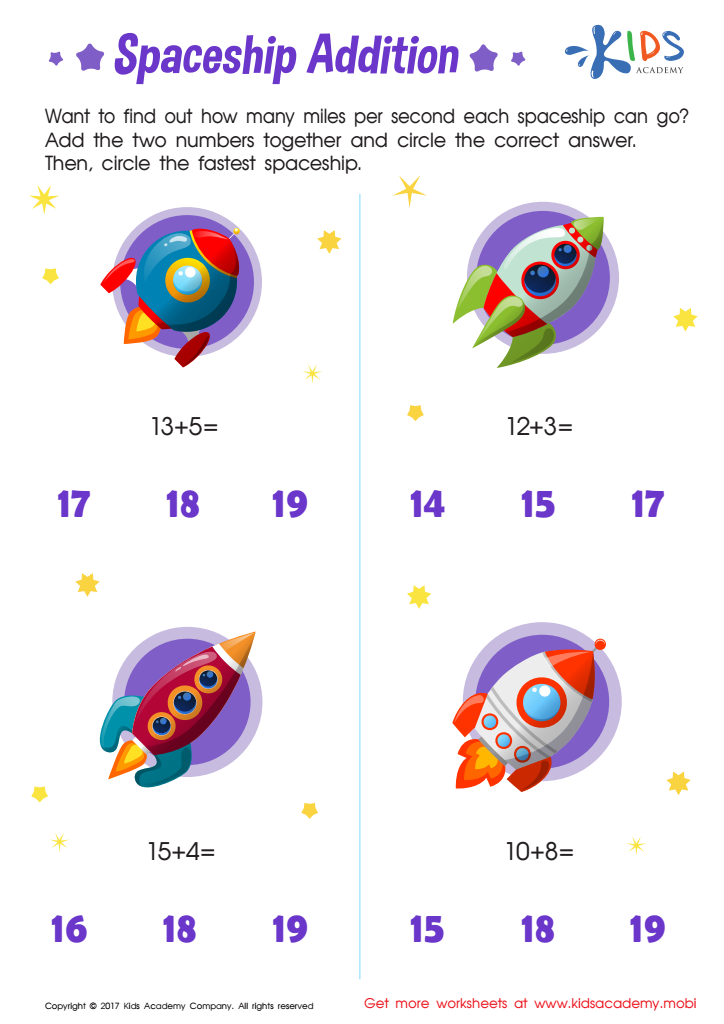Problem-solving abilities Normal Math Worksheets for 5-Year-Olds
6 filtered results
-
From - To
Explore our engaging Problem-Solving Abilities Normal Math Worksheets specially designed for 5-year-olds. These worksheets focus on developing critical thinking and analytical skills while making learning fun! With a variety of activities, children will encounter age-appropriate challenges that encourage logical reasoning, pattern recognition, and creative solutions. Each worksheet ensures a balanced mix of visuals and educational prompts, making it easy for young learners to grasp essential math concepts. Perfect for both classroom and home learning environments, our worksheets support early childhood development, helping kids build confidence and a strong foundation in math. Download and watch your child thrive in problem-solving!
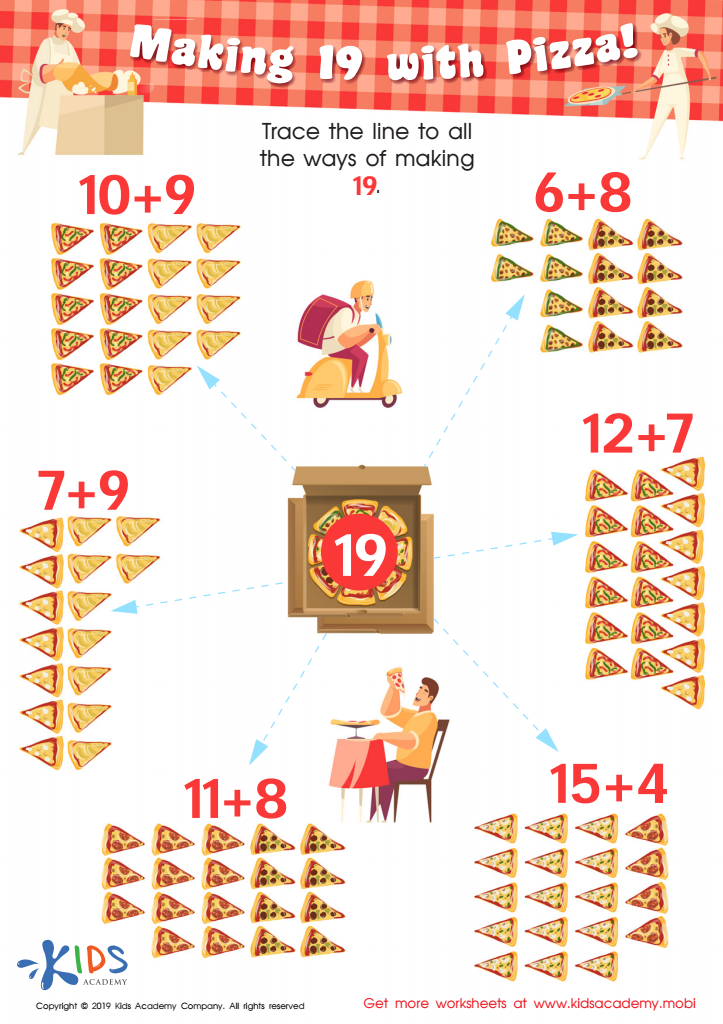

Making 19 with Pizza! Worksheet
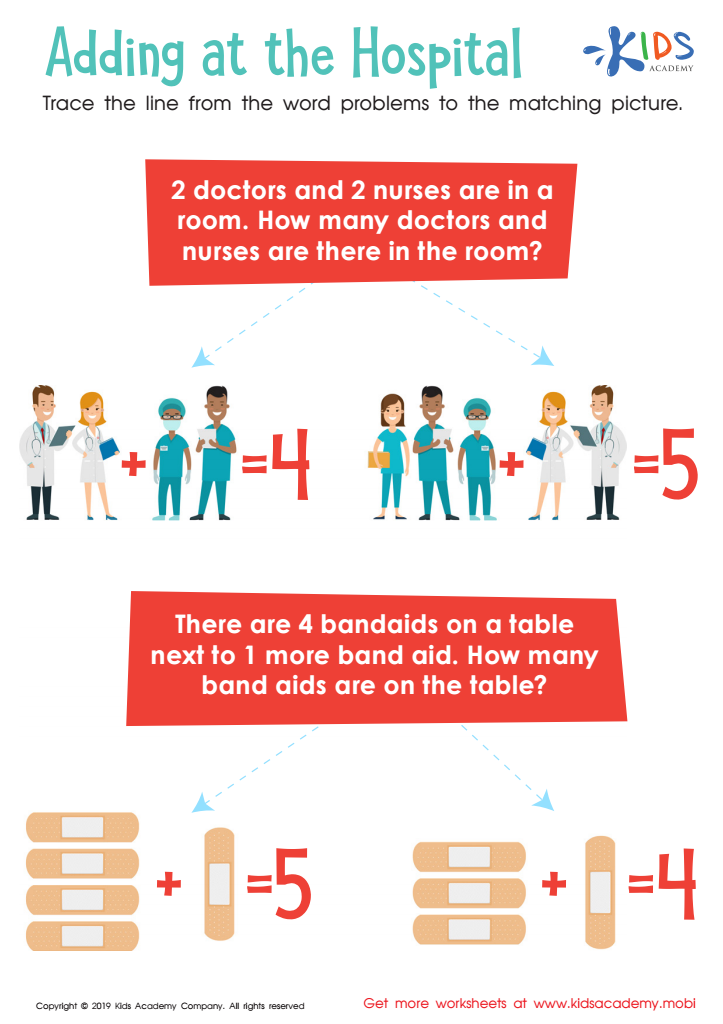

Adding at the Hospital Worksheet
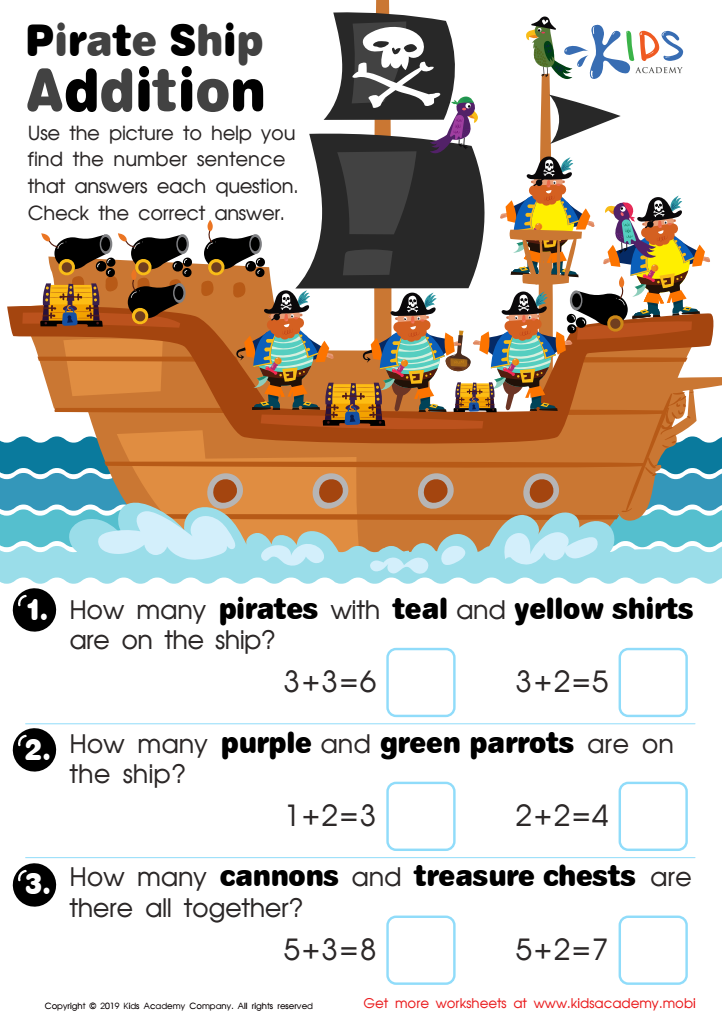

Pirate Ship Addition Worksheet
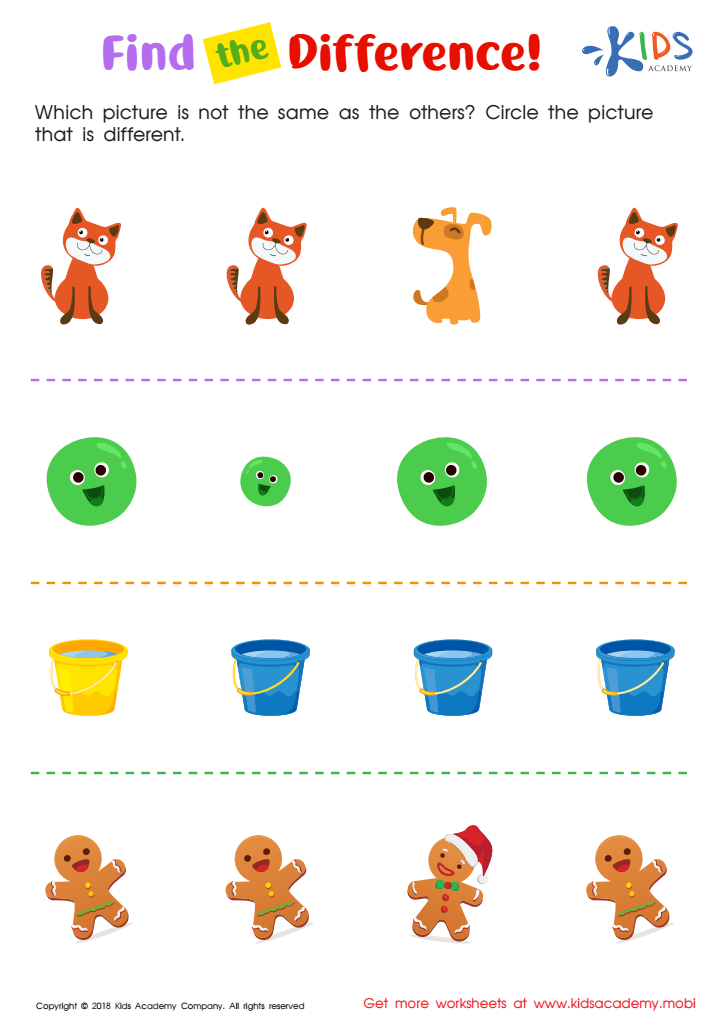

Find the Difference Worksheet
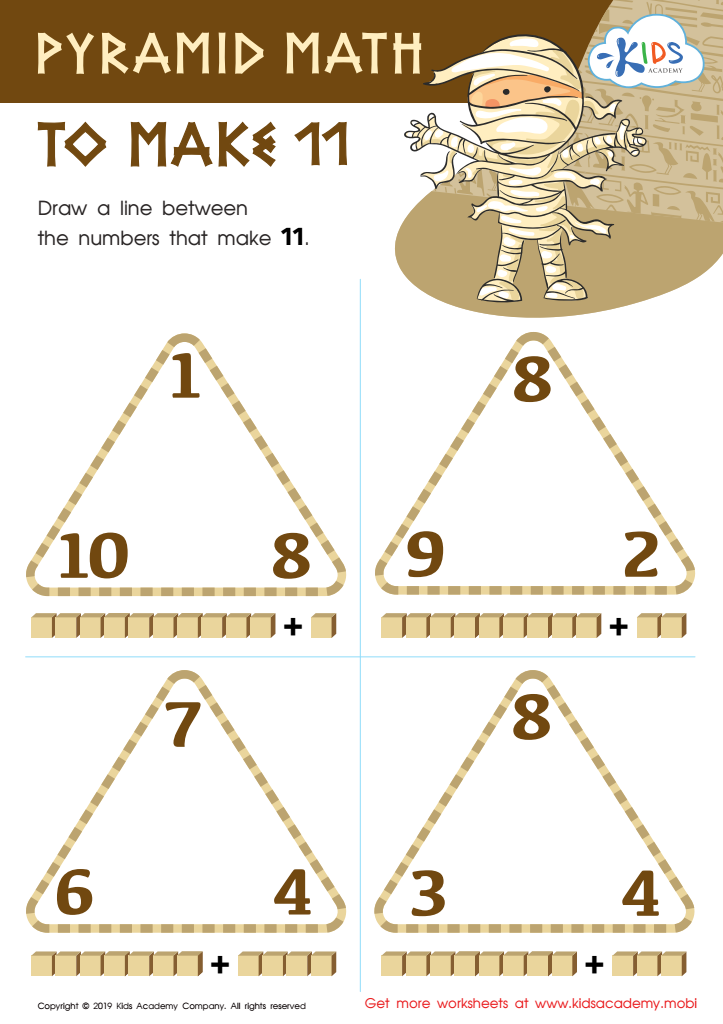

Pyramid Math to Make 11 Worksheet
Problem-solving abilities are crucial for the cognitive development of 5-year-olds and should be a priority for both parents and teachers. At this age, children are naturally curious and are beginning to understand the world around them. Engaging them in problem-solving activities through normal math helps to foster critical thinking skills, enhances creativity, and promotes persistence in overcoming challenges.
When children learn to navigate mathematical problems, they're not just learning numbers and operations; they're developing important life skills such as reasoning, analyzing situations, and making decisions. These foundational skills contribute to their overall academic success, building confidence and competence in their abilities.
Additionally, encouraging problem-solving in early childhood lays the groundwork for later mathematical understanding. As children learn to approach problems systematically at a young age, it sets the stage for more complex math concepts in the future.
Furthermore, parents and teachers serve as role models in demonstrating problem-solving strategies. By participating in these tasks together, they foster a supportive environment that encourages exploration and resilience. Ultimately, investing time and resources into enhancing early problem-solving abilities equips children with the tools they need to thrive both academically and personally.
 Assign to My Students
Assign to My Students

